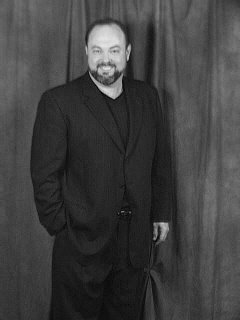Homosexuality is at the forefront of debates all across the nation today, from Same-Sex Marriage legislation and litigation, to Christian denominations agonizing and exploding over homosexual marriage and ordination of practicing homosexuals. There is even a group that travels around the country carrying signs that read, “God hates fags.”
The reason this touches us so deeply and arouses so much energy on both sides of the issue is that we are talking about fundamentally what it means to be a human person. The issue of homosexuality elicits a deep response from most of us because it calls into question our very identity.
Some view the current argument over the acceptance of homosexuality and “same-sex marriage” as just a continuation of the unraveling of the social order and loss of a strong moral foundation begun in the sixties with the “equal rights” feminist movement. Others hope society is finally accepting of everyone regardless of their chosen lifestyle. Still others say, “It’s all biological. We can’t help what we were born to be.”
Regardless of our position on this or that social issue, we must never forget that the Church is meant to be the place of sanctuary and healing for those who are hurting and seeking salvation. There are people, probably in every parish, that struggle with their sexuality and their sexual identity.
As a Church, how do we minister both Truth and Healing in a way that allows those who are hurting to find help in our midst? As a Church, how do we authentically hate the sin but love the sinner? How do we maintain a welcoming atmosphere for everyone (because all of us are sinners and need the grace of God found in the Church) AND be clear that sinful behavior must be confronted and challenged?
First, Truth is a Person. We must never forget that God did not just give us a Book, He came to us Himself in the Person of His Son, Jesus Christ. It is simply too easy to fall back on cold rhetoric and impersonal rules when we are discussing issues, but we cannot lose sight of the truth that God lives as Persons in communion. That means that dehumanizing or demonizing those with whom we disagree is sinful. As St. Paul told the Ephesians: “For we wrestle not against flesh and blood, but against principalities, against powers, against the rulers of the darkness of this world, against spiritual wickedness in high places.” (Ephesians 6:12 ). In other words, we have no human enemies! To those who struggle, to those who suffer, to those who seek healing, we in the Orthodox Church bring them hope found in only One, Our Lord Jesus Christ. He alone is their hope and salvation.
Second, Truth is Liberating. You can always tell whether someone is really interested in truth – he or she will do anything to apprehend it. People really interested in truth want to be free from the lie which enslaves them. The measure of a man’s honest desire for truth is his desire for authentic freedom. Here the Church lovingly declares the wisdom of the ages when She directs those gripped by a self-destructive pattern of behavior , to allow Christ to set them free from the lifestyle that is killing them. As Jesus said: “If you abide in My word, you are My disciples indeed. And you shall know the truth, and the truth shall make you free." (John 8:31b-32) It is no sin to warn those who are destroying themselves by selfish rebellion, but we Christians do this with love and mercy, not with hatred and malice.
Finally, Truth is Eternal. Our theology and our morality are not dependent on the times we live in (see Psalms 119:89). We do not “adjust” our faith to be popular or to “fit in” with the modern age. Some may see this as being hopelessly enslaved to the past. But we do no favors to our society by reformulating our beliefs every time our faith falls into disfavor of the spirit of the age. We aren’t called to be popular. We are called to be faithful. And this faithfulness to the Orthodox Christian faith is the most loving gift we can give our children, our community, our nation, and our world. By doing this, we run the risk of being rejected and even hated, but our Lord Himself said to His disciples, “If the world hates you, keep in mind that it hated me first.” (John 15:18)
A wise man once said, “be gentle with everyone you meet, because everyone you meet is fighting a hard battle.” Today, you and I will meet face to face with others who are hurting, who are confused, and who don’t know which way to go. We will be given the opportunity to show Christ in our own lives to those hurting people. By God’s grace, let us commit ourselves to sharing the Truth of Jesus with everyone we meet. Some will reject this truth, but others will find the path to freedom because of our loving witness to the timeless faith in Christ.
Why Not Use Ancient Rites?
5 years ago


